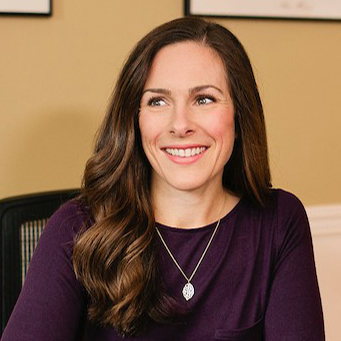Explore Related Nursing Specialties
What You Need to Do to Become a Psychiatric Nurse Practitioner

What Is a Psychiatric Nurse Practitioner?
Psychiatric nurses specialize in caring for patients with a variety of behavioral health needs. This field of nursing involves evaluating and treating patients experiencing mental health disorders, substance abuse problems, abuse, and trauma.
There are several ways to become a psychiatric nurse. You can begin practicing as a psychiatric nurse after earning a Bachelor of Science in Nursing (BSN) and obtaining licensure as a registered nurse (RN).
However, many psychiatric nurses choose to pursue a Master of Science in Nursing (MSN) or Doctor of Nursing Practice (DNP) and become a psychiatric nurse practitioner. This level of education takes more time, but it allows you to practice in the broadest range of settings, pursue leadership and research opportunities, and in some states, even operate a private practice and prescribe medications.
Psychiatric nursing is a growing field, and qualified behavioral healthcare providers are still scarce in many parts of the country. Because of this, working as a psychiatric nurse practitioner can help fill an important need, says Sattaria “Tari” Dilks, DNP, APRN, PMHNP-BC, FAANP, a professor of nursing at McNeese State University and president of the American Psychiatric Nurses Association (APNA).
Psychiatric nursing is a growing field, and qualified behavioral healthcare providers are still scarce in many parts of the country.
“In many states there are huge areas with little to no access to psychiatric care,” says Dilks. “It is my hope that by increasing the number of psychiatric providers who can diagnose and prescribe medications, we’ll see an increase in the availability of psychiatric services in underserved areas.”
What Does a Psychiatric Nurse Do?
Psychiatric nurse practitioners diagnose and treat mental health conditions in patients of all ages by:
As highly respected behavioral healthcare providers, psychiatric nurse practitioners work collaboratively with other members of a patient’s healthcare team, which may include a primary care physician, psychologist, physical therapist, or other healthcare professionals. Psychiatric nurse practitioners can also perform psychosocial assessments and provide emergency psychiatric care.
Types of Jobs, Workplaces, and Patients You’ll See
Psychiatric nurse practitioners can pursue job opportunities in a wide variety of settings, either independently or in:
In many states, psychiatric nurse practitioners can prescribe medications and operate independent practices without the supervision of a physician. In private practice, they provide individual and group therapy and consult with patients remotely via telemedicine.
As skilled advanced practice healthcare providers, they also can serve as consultants and expert witnesses, or take on leadership roles within healthcare organizations
Patients of All Ages and Walks of Life
Psychiatric nurse practitioners work with patients of all ages who are experiencing abuse, addiction or mental health conditions such as schizophrenia, bipolar disorder, depression, and eating disorders.
They include:
Psychiatric Nurse Duties and Responsibilities
Psychiatric nurse practitioners provide focused, specialized psychiatric care for patients, helping meet a growing national demand for behavioral healthcare services. Because many patients lack access to behavioral healthcare, primary care physicians commonly address mental health disorders and prescribe psychiatric medications.
While a typical primary care physician has limited time to spend with patients and may not be able to provide ongoing monitoring and support for mental health disorders, psychiatric nurse practitioners can focus on patients with intensive psychiatric needs, devoting more time and attention to patients who need specialized mental health treatment and support.
Compared to other nursing specialties, psychiatric nursing tends to be more team-based, says Dilks.
“In most inpatient environments, you work with a team to come up with the best treatment you have to offer,” she says. “It’s more collaborative than in many other areas of nursing.”
Qualities of a Successful Psychiatric Nurse Practitioner
Psychiatric nurse practitioners need emotional grounding to provide the compassion and stability their patients may need. Here are some qualities that can be crucial to your success.
As a psychiatric nurse practitioner, it’s important to understand that it’s not your job to cure people, says Dilks.
“It’s our job to walk alongside people as they work to get better. There are no quick fixes. It requires creativity, empathy, and understanding,” she says.
What Degree Do You Need To Be a Psychiatrist?
You can become a psychiatric nurse with an Associate Degree in Nursing (ADN) or a Bachelor of Science in Nursing (BSN). However, not all psychiatric nurses are nurse practitioners. A nurse practitioner is an advanced practice registered nurse (APRN), a licensed RN with an advanced degree.
Most psychiatric nurse practitioner programs require a BSN or higher from an accredited university, along with at least one year of clinical experience, for admission.
To be a psychiatric nurse practitioner, you’ll need to become a registered nurse, earn an advanced degree, and pass an additional credentialing exam. You can become a psychiatric nurse practitioner with an MSN, although many nurses choose to pursue a Doctor of Nursing Practice (DNP) degree to expand their job prospects, research opportunities, and earning potential.
Admissions requirements for most psychiatric nurse practitioner programs require a BSN or higher from an accredited university, along with at least one year of clinical experience.
Degree Pathways
There are several paths to becoming a psychiatric nurse practitioner, depending on your current level of education and nursing experience. The time required to complete these programs will vary based on whether you’re in school full time or part time.
In addition to liberal arts and general education coursework, students in BSN programs can expect to study:
Graduate-level coursework in psychiatric nursing includes:
Students also must complete clinical hours. Advanced degree programs require a minimum of 500 clinical hours, though some require more.
Clinical hours must be completed in psychiatric settings. Psychiatric nurse practitioners who want to specialize in pediatrics, for example, may be required to complete clinical hours working with children and adolescents.
Online Psych NP Programs Are Available
Some psychiatric nursing programs are offered online. This could be a good option if you don’t live near your chosen school or on-campus classes would conflict with work or family responsibilities.
The online format lets you complete much of your education when it’s convenient, as long as you meet established milestones and deadlines for course requirements. You’ll still need to perform your clinical hours in a hospital, clinic, community healthcare organization, or another behavioral healthcare setting.
What Licenses and Credentials Do You Need?
Psychiatric nurse practitioners must have a current RN license in the state in which they practice.
In addition, after they earn their MSN or DNP, they must earn the credential Psychiatric-Mental Health Nurse Practitioner Board-Certified (PMHNP-BC) through the American Nurses Credentialing Center (ANCC).
Two credentialing exams are available:
Psychiatric nurse practitioners with an interest in working with children or families can become certified as a Pediatric Primary Care Mental Health Specialist (PMHS) through the Pediatric Nurse Certification Board (PNCB).
Check with your state’s board of nursing about additional licensing requirements for your area.
What’s the Difference Between a Psychiatric Nurse Practitioner and a Psychiatrist?
Both psychiatric nurse practitioners and psychiatrists assess and treat mental health and substance abuse disorders and may collaborate on patient care.
Psychiatrists, however, are medical doctors (MDs) who have completed four years of medical school and a three- to seven-year residency after graduation. They’re also licensed to provide therapy and prescribe medication independently or in group practice without supervision by another healthcare provider.
In some states, psychiatric nurse practitioners can prescribe medication; in others, they can provide therapy or counseling but cannot prescribe medication without the supervision of a physician.
Psychiatric Nurse Salary and Outlook
Psychiatric nurse practitioners can expect a rewarding career with expanding job opportunities over the next decade. According to the U.S. Bureau of Labor Statistics (BLS), jobs for nurse practitioners are projected to grow 44.5% by 2031, much faster than for other occupations.
The BLS doesn’t compile salaries specifically for psychiatric nurse practitioners but reports nurse practitioners in general. Here are median annual salaries by state.
Average Salaries by Workplace
Where you work also can be a factor in your salary. Here are some BLS examples of median salaries for nurse practitioners by workplace:
Mental health and substance abuse facilities:
$131,830
Outpatient care centers:
$129,190
General medical and surgical hospitals:
$122,960
Offices of other health practitioners:
$108,890
How Do Comparable Jobs Pay?
In general, psychiatric nurse practitioners earn more than nurses with BSNs and other advanced health professionals with similar education.
The one exception is nurse anesthetists, who can earn an average of $212,650 annually, according to the BLS.
How to Stay Informed in this Field
Keeping up with trends and emerging issues in psychiatric nursing can help guide and advance your career. Professional associations, blogs, journals, and social media accounts all can be good sources for the latest news and conference dates and provide opportunities to network. You can get started with these:
American Association of Psychiatric Nurses
National Alliance on Mental Illness Blog
American Association of Nurse Practitioners
Is This the Right Specialty for You?
Nurses working in psychiatry partner with patients to overcome significant challenges, which takes patience, dedication, and a genuine interest in helping people. The payoff is making a meaningful difference in the lives of patients.
“This is an enormously satisfying profession because every person is built differently,” says Dilks. “Working with a patient is like working on a wonderful puzzle together.”
Working as a psychiatric nurse practitioner may be an excellent fit for someone interested in nursing but not drawn to sterile surgical settings, she says. “It’s a combination of art and science and involves treating both the mind and body. You connect with patients on a very different level, which is incredibly rewarding and never boring.”

With professional insight from:

Sattaria “Tari” Dilks, DNP, APRN, PMHNP-BC, FAANP
Professor of nursing, McNeese State University, and president, American Psychiatric Nurses Association (APNA)
